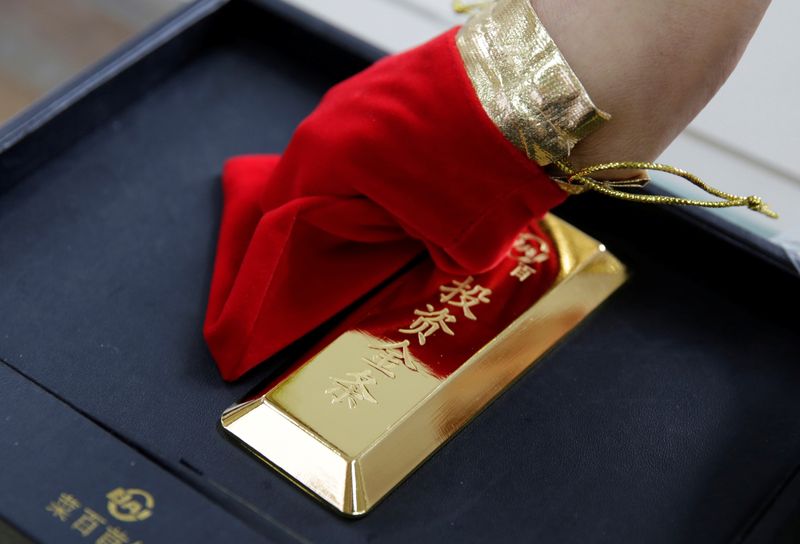By Polina Devitt and Kevin Yao
LONDON/BEIJING (Reuters) -Aggressive gold-buying by China’s central bank since 2023 has raised the question of how far Beijing will boost its reserves as it tries to reduce its reliance on the dollar and align its holdings with its status as the world’s second largest economy.
Powered by Money.com – Yahoo may earn commission from the links above.
China’s purchases coincide with a rally from 2023 to 2025 that has driven gold prices to a record high of $3,508.5 per troy ounce on Tuesday.
The surge also highlights a broader trend of developing economies seeking to diversify from the dollar after Western sanctions froze $300 billion of Russia’s official reserves, about half of Moscow’s total, in 2022.
Russia’s central bank was left able only to access investments in yuan-denominated assets and gold stored domestically.
The People’s Bank of China has bought 21 metric tons of gold so far this year. Last year it bought 44 tons and in 2023 it purchased 225 tons, when it was the world’s largest buyer among central banks.
Future plans to buy gold for China’s state reserves, which officially stand at 2,300.4 tons, are a state secret. Reuters did not try to obtain any official targets for future gold-buying for this story, which relies on analysts’ estimates.
A target of 5,000 tons was suggested in 2009 by Hou Huimin, then the vice general secretary of the China Gold Association, citing the country’s rising international status and the 2008 global financial crisis.
If China targeted 5,000 tons in 2009, a higher number should probably be expected now as the country’s economy has since expanded rapidly, BNP Paribas analyst David Wilson said.
“We will continue seeing demand from the PBOC as China carries on with diversification and de-dollarisation of its reserves,” Wilson said.
Gold reserves at or above 5,000 tons would make China’s central bank the world’s second largest official holder of gold, behind the United States, which holds 8,133.5 tons, and ahead of France, Germany and Italy.
Central banks hold gold in their foreign currency reserves portfolio as a relatively low-risk asset, often seen as a hedge against inflation and geopolitical or economic uncertainty. In normal circumstances, they reduce purchases when gold prices are high.
“What is different now is that uncertainty itself has become systemic,” the United Nations agency for trade and development said in its Global Trade Update on Monday, adding that this hit developing economies hardest.
This year’s uncertainties have included U.S. President Donald Trump‘s upending of Western security policy, his trade wars with China and other countries and his criticism of Fed chair Jerome Powell that have raised doubts about the independence of the U.S. Federal Reserve. None of these risks has been resolved.
Story Continues
